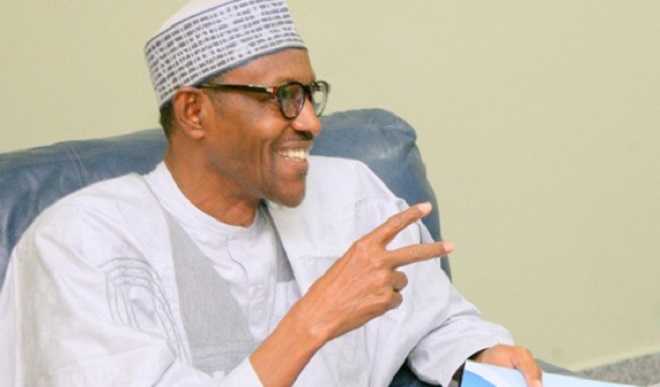
It has become a tradition that as soon as a new Nigerian leader – such a President or Governor is elected into office, the next consideration on the lips of many citizens is less about the incumbent’s mission and agenda. For these Nigerians, the focus seems to veer more onto when such incumbent would leave office, what dividends would accrue to them during the tenure and who would the successor be, for the cycle of reaping from the system to continue. Lamentably, hardly do Nigerian and indeed African leaders bother about succession plans except that of self-recycling, hence their eventual exit from office is often trailed by messy circumstances.
Many Nigerians who have followed the political life of President Muhammadu Buhari, especially his sterling rating as a forthright leader following his activities during an earlier era as the country’s military Head of State, are praying that his story must not correspond in all aspects with the foregoing, uninspiring picture. As far as they are concerned his story should take a different direction, given the uniqueness of the circumstances surrounding his advent. The simple fact that he created history by beating a seating African President in an open election accentuates his acceptability for the office at least at that point. However events and the passage of time since then may have changed the picture, leaving his return to the seat of power, an open debate today. Just as some bring happiness when they come, others do so, when they leave.
However, the recent revelation by Senator Aisha Jummai Al-hassan, in respect of Buhari’s re-election expectation, cannot be anything less than an upper-cut blow to the agenda of his campaign lobby which undeniably is massing up. In a recent interview with the BBC Hausa Service, the Minister stirred the hornets’ nest when she stated that Buhari did not express any intention to go for a second term and as such, she would not expect him to present himself for re-election. Not done with that salvo as it were, she clarified her position by rooting for the aspirations for the Presidency by the former Vice President Alhaji Abubakar Atiku, whom she claimed had been her political godfather even before she went into politics.
Against the backdrop of her antecedents, her pronouncement is not only weighty but defines a new thrust for the politics of 2019. Currently, the country’s Minister of Women Affairs, Aisha Al Hassan (Mama Taraba as she is fondly called by her admirers) is coming on stage with rich antecedents. A lawyer by training, she records several career firsts, including emerging as the first female Senator in 2011, from that state. Hence a pronouncement as was delivered by her can only be ignored at a great cost to both sides of the Buhari 2019 agenda.
Meanwhile, given the circumstances which preceded, accompanied as well as trailed his advent as President and which also bore the markings of the arrival of a messiah of sorts, many had wished that a single term of mere four years was too short for him to cleanse Nigeria’s ‘Augean’ stable. His firm stand on the war on corruption, especially the apprehension of several, seemingly untouchable highbrow public officers who were accused of and found to have diverted public funds and property to their personal treasuries, consequently earned for him a cult figure – a throwback to the 1983 – ‘85 days of his earlier stint on office as a military Head of State. It is therefore understandable that many Nigerians are inclined to see his re-election as the best thing that would happen to the country.
When the foregoing is juxtaposed with his recent health challenges and associated long periods of hospitalisation, they create room for questions over his health status in respect of a second term when the first one is proving too demanding on him. The African proverb comes into play here which states that “if the first child does not crawl how can the second child run?
Placed in context, Al-hassan’s intervention has introduced a new dimension to the entire question of whether Buhari 2019 will be or not. Courtesy of her intervention, the issue has gained more momentum and demands that both its proponents and opponents go back to the drawing board and represent their cases to the Nigerian public. Nigerians are not unmindful of the several signs that come 2018 nomination time, the usual drama scenes featuring intrigues, blackmail and subterfuge – to name a few inanities, will be on show. As for Buhari, not a few will be disappointed if he joins the bandwagon subterfuge spinners to tell the country, that he has been ‘prevailed’ upon by his people to present himself for another term of four years. This scenario tallies with the agenda of the pro Buhari lobby that are not taking the matter lightly and has mobilised to mitigate whatever damage Alhassan’s intervention has brought.
In all of this shadow boxing the truth still remains that Buhari’s surrogates who are lending their voices to urge him to return to the soap box of campaign in 2018, may not be helping matters and are largely seen as only gunning for his extended stay in office to facilitate their continued control of the nation’s patrimony. Of greater nuisance value are those who are advocating that he remains the only option for the APC come 2019, even before the party’s primaries. Are they suggesting that the ‘change’ minded APC, in its very first electoral outing after its historic sweep of the polls in 2015, is also going to adopt the questionable practice of imposing candidates for elective offices come 2019? Was this not one of the indulgences of the PDP in 2015 that placed it in the doldrums from which it is battling to return?
Indeed, the situation remains baffling to many Nigerians and demands a proper clarification, which only President Muhammadu Buhari, the man at the centre of the controversy can and should resolve by stating categorically whether Buhari 2019 shall be, or not.

 Join Daily Trust WhatsApp Community For Quick Access To News and Happenings Around You.
Join Daily Trust WhatsApp Community For Quick Access To News and Happenings Around You.


